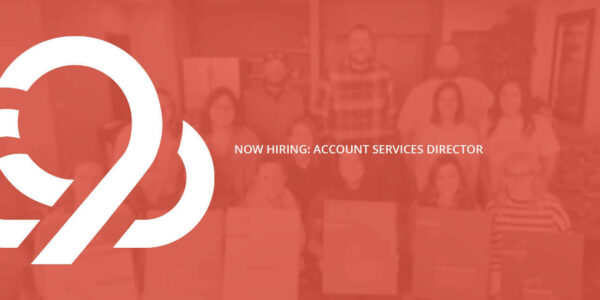
What’s Happening to Internet Cookies?
There has been a lot of talk about cookies over the last few years. Personally, I enjoy a good Girl Scout Thin Mint or Mega Stuf Oreo, but our Chief Technology Officer Allen Day appreciates the inedible kind found on the internet.
In this Q&A with our cookies guru, we learn about the history of internet cookies and where we see them going in the future.
History of Internet Cookies
Betsy: Tell us a little bit about cookies and how they have evolved over the years.
Allen: Cookies first were coined in 1994 by their creator Lou Montulli. These cookies are super simple, small .txt files that give the web developer a way of saving key/value pairs (id=x, name=john). Additionally, when setting cookie metadata, it includes what domain the cookie is made for and how long the cookie should last — be that just until you close your browser, or potentially for years.
Once on a website, a cookie doesn’t collect information you don’t give it and only tracks the information you tell it to track. The tracking allows the website owner to understand how users move throughout their site.
First and third-party cookies haven’t had many disruptions since 1994, so browsers, apps, and websites that block cookies to address user’s privacy concerns have caused a stir in the past few years.
Internet Cookie Lockdown
Betsy: Why are people wanting to put a lockdown on cookies now?
Allen: Cookies are on the honor system. Historically, third-party cookies would be set under the provider’s domain and run on the site you wanted to track.
For example, on 9clouds.com, a facebook.com cookie would be considered third-party. First-party cookies are associated with the domain of the website you own (e.g., a 9clouds.com cookie on 9clouds.com is a 1st party cookie). Even if they are from another website (like facebook.com), you are letting the cookie live on our site (9clouds.com), versus having it come over from another cookie jar.
In 2018, Apple shifted to saying that website owners must have all of the cookies in their own cookie jar (their own website domain) versus having the cookies hosted in another cookie jar.
Apple led the way by saying they’d block third-party cookies. Over time, other websites have done the same, setting their cookies as first-party versus third-party, allowing them to continue to track user behavior. Major websites like Facebook rolled their 3rd party cookies into first-party cookies so they wouldn’t get blocked as frequently. So, even if the cookie was made by and used by Facebook, it is listed as a 9clouds.com cookie. Only the cookie name would distinguish whose or what it was.
Degrees of Cookies
Betsy: How does Google work around this?
Allen: When you put a piece of code (think pixel or javascript) on a site, it originally pulls from the third-party server. Once it loads for the browser you are in, it will be pulled into the memory of the domain it’s working on. Google has worked to change the code so that it is seen as a first-party cookie rather than a third-party cookie.
Browsers are becoming increasingly sophisticated and are able to “see” the .txt cookie files and know that they really aren’t first-party, but are secretly third-party cookies.
Some browsers identify this by the source script, or perhaps the cookie file name gives it away. More and more browsers are offering ad blocking natively within their platform. There are also ad blocker apps and extensions that someone can install on their browser if it doesn’t already offer one.

Cookie Crumbles
Betsy: How, as marketers, can we track these internet users?
Allen: Not everyone will opt into blocking cookies.
We are seeing more disparity between platforms like Facebook and Google Analytics, but you have to remember that the platforms work at different levels. Once someone clicks on an ad, Facebook says they clicked and it is reported as a hit, regardless of cookies. That is first-party data happening on the Facebook side.
But if trackers are blocked, that is potentially the end of the data trail for that user.
Google Analytics, a third-party tracker installed on your website, won’t see the user come in from Facebook. For someone to be reported in Google Analytics, the person has to come to the site and let the page load so all of the cookies and code on the site can track them. If they leave too soon, Google Analytics won’t have a pixel fire, and thus you won’t be able to track the user.
We are beginning to see large website providers offering API to allow two websites to talk directly with each other behind the scenes on the server level. This circumvents the need for a cookie or pixel on the site and puts them at the mercy of the user’s decision to have an ad blocker.
Working Without [Internet] Cookies
Betsy: Is there anything dealerships can do to learn more about their internet users if the users block cookies?
Allen: This is a bigger challenge for agencies like 9 Clouds who want to show clients their return on investment (ROI) than it is for a dealer whose primary goal is to get leads to contact them.
While there are a number of alternative tracking initiatives in development, the short answer is “no.” There is no setting to change or flip on for dealers. We cannot stop the user from blocking tracking via cookies. There are sites that say, “We see you are blocking ad tracking, and we won’t let you in until you unblock it,” and that makes sense for content providers whose very lifeblood is tracking/advertising.
We wouldn’t recommend that approach to a dealer, because you are sending people away.
We’d much rather have a user view ten vehicle description pages and not be able to claim the traffic, versus sending them to a competitor’s site because they are blocking us from “seeing” them. The user can still fill out a form, call the dealership, or come in, and the dealership will have the pleasant surprise of a highly qualified shopper who buys.
Advice on Internet Cookies
Betsy: What advice would you give to someone who may still feel lost with all of these changes?
Allen: There are two pieces of advice I’d love to give for anyone still confused, or just doesn’t have the time to worry about cookies.
- Don’t panic. We’ve been through a lot of privacy changes throughout our lives related to digital footprints. For years, there have been rules and regulations related to email marketing, but once you landed on someone’s website they could track the heck out of you. We’ve seen legislation changes in Canada with CAN-SPAM, Europe with GDPR, and California with CCPA. At the end of the day, we are still able to market to people — just not everyone or as invasively. I’m totally okay with that!
The users who are still on the email list after an opt-in are more qualified individuals because they want to hear from you. It’s similar to the changes Apple made with the recent iOS14 update — everyone panicked, but didn’t need to.
We can still market to anyone; we just have to find creative ways of finding people who want to receive it, instead of relying on tracking that may be more than they’re comfortable with. - Hire someone. When you are working in your dealership, you hire and train your sales team to know everything there is about the cars they sell. The finance department does the same, and so does service. Like all of your other departments, hire a marketing team that is entrenched in digital marketing day in and day out.
This is why you hire someone like 9 Clouds.
Things are changing. We’re on top of changes, and we’ve been watching this for years. Change is hard, can be scary, and can make us work a little harder when it happens. But we love a good challenge that brings great leads to your store.
Hire the Cookie Experts
Just like the major changes that came with Facebook and the most recent iOS 14 update, our team is on top of all of the “internet things” most people don’t have time for.
If you want to focus on cars and not cookies, we encourage you to reach out and request a custom proposal of what your marketing plan could look like with our dedicated team of digital marketing experts.
get your custom proposal


![Human vs AI A/B Test [Spoiler Alert: Humans Win!]](https://9clouds.com/wp-content/uploads/2024/02/Volvo-dealership-1-600x388.png)


